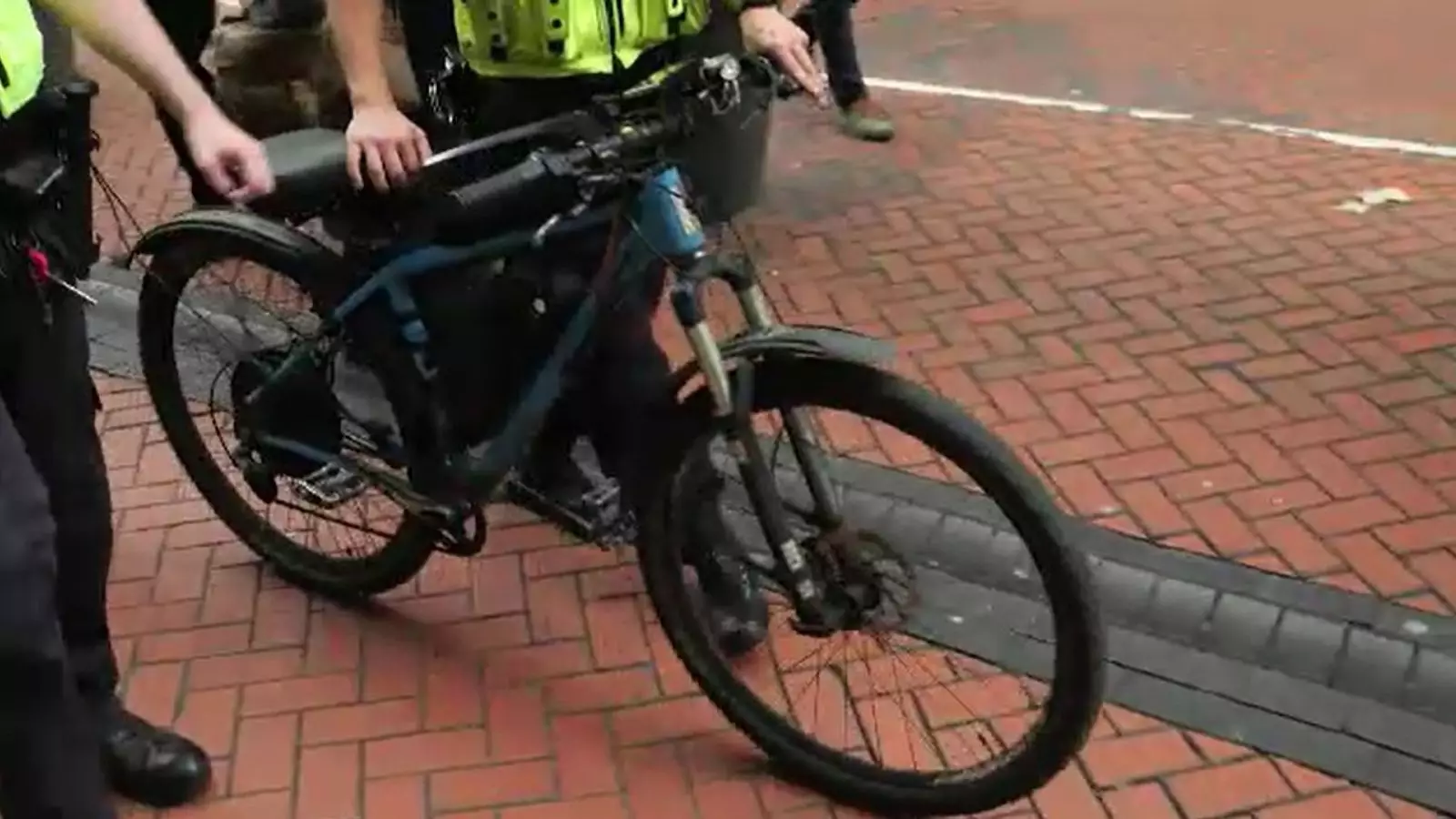In the bustling heart of Birmingham, the sight of eager delivery riders zooming through crowded streets with apparent ease symbolizes the rapid evolution of urban life and the increasing reliance on electric mobility. Yet, beneath this veneer of technological progress lies a troubling undercurrent: the proliferation of illegally modified e-bikes. While these devices promise efficiency and speed for gig workers, they actually threaten to undermine public safety and undermine regulatory efforts. The rush to adapt and innovate for economic survival has inadvertently cultivated a dangerous black market, turning what should be a sustainable transport solution into a hazard that endangers everyone.
The core issue isn’t simply about illegal modifications; it’s a reflection of systemic failures. Employers and policymakers often neglect rigorous enforcement and comprehensive safety protocols, pushing workers into the shadows where shortcuts become commonplace. It’s a cycle driven by economic desperation, a lack of oversight, and the allure of unregulated gains. The promise of quick earnings through risky shortcuts overshadows the moral and legal responsibilities to ensure safety—for riders, pedestrians, and vulnerable groups like children and the elderly.
The Intersection of Law, Safety, and Commercial Responsibility
The recent operation by West Midlands Police paints a stark portrait of the tangible consequences stemming from these illegal modifications. Officers confiscated multiple bikes—each altered to surpass speed limits safely set for electric assistance, reaching speeds over 30mph. Such speeds are wholly unregulated in the current legal framework, transforming once benign delivery tools into potential missiles on city streets. The operators behind these bikes aren’t just breaking minor rules—they’re engaging in a form of reckless endangerment.
Beyond individual safety, there’s an ethical concern about corporate accountability. Delivery firms like Uber Eats, Just Eat, and Deliveroo publicly emphasize safety and legal compliance. However, the reality on the ground suggests a persistent disconnect. Numerous riders, caught in economic strife, resort to illicit modifications to meet the relentless demand for faster deliveries, risking fines, confiscation, and even deportation in the case of undocumented workers. These companies must do more than just issue statements—they need to implement rigorous screening, continuous monitoring, and real-time enforcement measures to ensure compliance. It’s about creating a culture where legality and safety are prioritized over short-term profits.
Addressing the Root Causes While Enforcing the Law
The crackdown highlights a broader societal dilemma: how to reconcile economic necessity with public safety without perpetuating injustice. For many delivery workers, illegal modifications are not a matter of choice but a symptom of systemic neglect—insufficient regulation, inadequate worker protections, and limited pathways for safe employment. Simply confiscating bikes and deporting workers without addressing these underlying issues risks perpetuating a cycle of marginalization.
A more nuanced approach is essential. Governments, businesses, and community stakeholders must collaborate to develop comprehensive solutions that combine strict law enforcement with social investment. Enhanced safety programs, legal avenues for bike modification, and fair employment practices can reduce the allure of illicit upgrades. Education campaigns that inform workers of the risks—not just to themselves but to the entire community—are vital. Moreover, infrastructure improvements, such as dedicated delivery zones and safer cycling lanes, can provide safer pathways that diminish the temptation to take dangerous shortcuts.
Ultimately, tackling illegal e-bike modifications requires a balance of firmness and compassion. The goal should be not to punish but to transform the system, making legality, safety, and dignity the foundation of urban mobility. When policymakers and industry leaders recognize that the real threat lies in neglect and inequality, then meaningful change becomes possible. Only then can the city’s streets become safer for those who traverse them—whether on foot, bike, or motor—without fear of reckless speed or unchecked lawlessness.


Leave a Reply